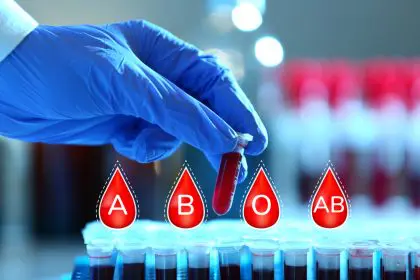Cancer is an unrelenting adversary that knows no bounds, affecting people from all walks of life. However, this formidable foe often goes undiagnosed in the Black community until it reaches advanced stages. This hidden danger poses a significant health risk, as early detection is crucial for successful treatment. Here are seven types of cancer not commonly diagnosed within the Black community, shedding light on the importance of awareness, early detection, and effective prevention strategies.
Pancreatic cancer: often asymptomatic until advanced stages
Pancreatic cancer is notorious for its silent progression, often presenting no symptoms until it reaches an advanced stage. Among the Black community, pancreatic cancer is often diagnosed at later stages, leading to poor survival rates. This disparity is due to several factors, including lower screening rates and limited access to healthcare resources. To combat this, it is crucial for individuals to be aware of their risk factors, such as family history, smoking, and obesity, and to engage in regular screenings, mainly if these risk factors are present.
Ovarian cancer: the silent killer among Black women
Ovarian cancer is often called the “silent killer” because its early symptoms are subtle and easily mistaken for other less severe conditions. This cancer is frequently detected among Black women at an advanced stage, leading to a lower survival rate. To address this issue, it’s essential for women to be aware of the risk factors, such as a family history of ovarian or breast cancer, and to discuss any unusual symptoms or concerns with their healthcare providers. Regular gynecological check-ups and screening tests can also play a pivotal role in early detection.
Colorectal cancer: the third most common cancer
Colorectal cancer is the third most common cancer in both men and women and, if caught early, can often be cured. However, African Americans are more likely to be diagnosed with advanced-stage colorectal cancer, leading to poorer outcomes. One of the reasons for this discrepancy is lower screening rates in the Black community. To bridge this gap, individuals must engage in routine screening, starting at the recommended age of 45, and raise awareness about the importance of early detection within their community.
Esophageal cancer: often diagnosed late
Esophageal cancer is another stealthy disease, with symptoms often appearing only in later stages when the disease has already advanced. Among Black individuals, esophageal cancer is frequently diagnosed late, resulting in limited treatment options and lower survival rates. To change this narrative, it’s vital for individuals to pay attention to risk factors like obesity, smoking, and acid reflux and to seek medical evaluation when experiencing symptoms such as difficulty swallowing and persistent heartburn.
Liver Cancer: late diagnosis in Black community due to hepatitis risk factors
Liver cancer is a disease that can remain asymptomatic until it has progressed to a later stage. Among the Black community, liver cancer is often diagnosed at a more advanced stage due to multiple factors, including a higher prevalence of hepatitis B and C, risk factors for this type of cancer. Regular screenings for these viruses and addressing risk factors such as alcohol consumption and obesity are essential to improve early detection and treatment outcomes.
Bladder cancer: a deadly disease
Bladder cancer is not as common as some other cancers, but it still poses a risk, especially in the Black community, where it is often overlooked until it has reached an advanced stage. To increase early detection rates, individuals should be aware of risk factors, including smoking history and exposure to certain industrial chemicals. Paying attention to potential symptoms such as blood in the urine, frequent urination, and pain during urination is also vital.
Thyroid cancer: Black women are more likely to be diagnosed compared to Black men
Thyroid cancer is another type of cancer that can manifest without noticeable symptoms. It often escapes early detection in the Black community, leading to diagnoses at more advanced stages. Regular self-exams of the neck area, routine physical exams, and raising awareness about thyroid cancer can help improve early detection. This is particularly important for Black women, as they are more likely to be diagnosed with thyroid cancer than Black men.
Cancer continues to be a formidable adversary, and the Black community faces unique challenges regarding early diagnosis and successful treatment. Individuals within the Black community must proactively manage their health, understand their risk factors, and seek early medical intervention when necessary. By doing so, we can unmask the silent threat and ensure that cancer is no longer a hidden danger within our community.
This story was created using AI technology.
















